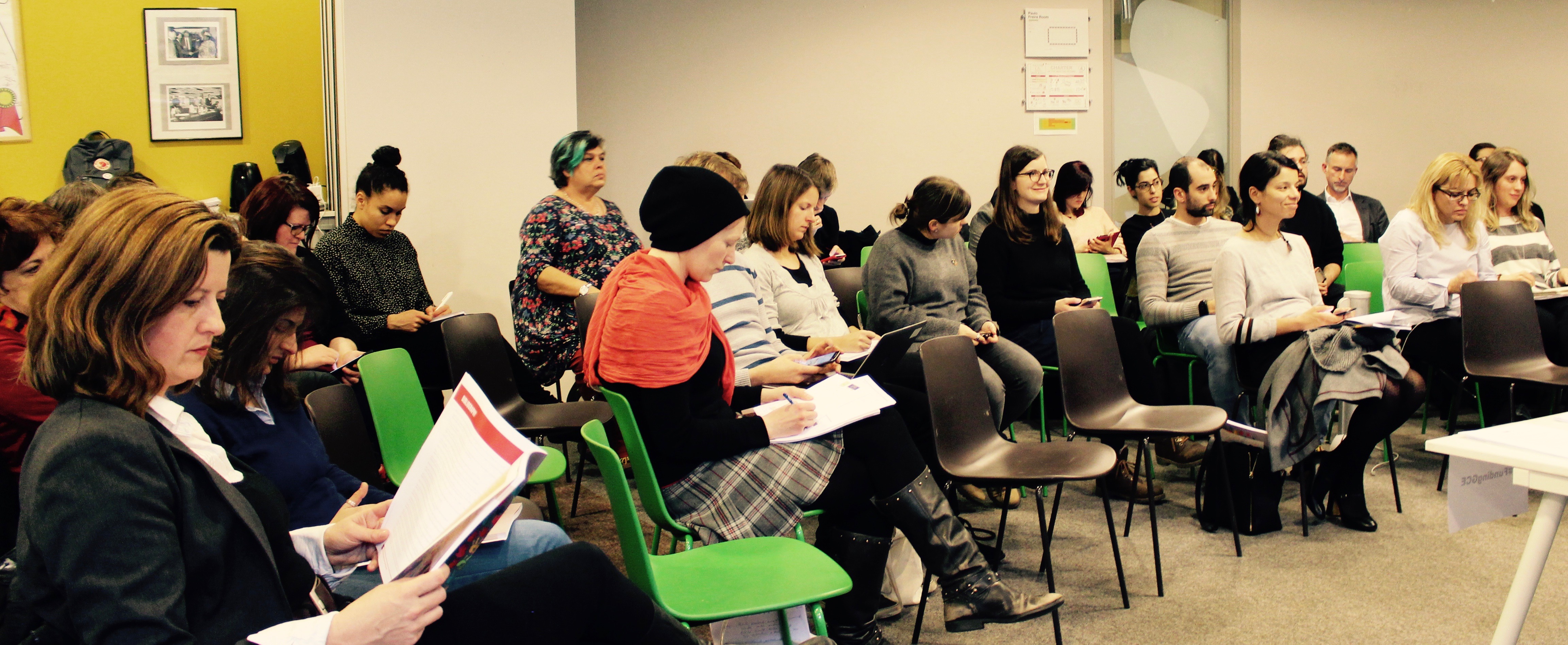On 8 March 2018, CONCORD launched its report on GCE Global Citizenship Education in Europe: How much do we care?.Why should we care about global citizenship education? How much funding goes to GCE in Europe? How much should we invest in Global Citizenship Education?
These and other questions were addressed in the report and discussed at the launch chaired by Marina Sarli, Board member of CONCORD with the panelists Joseph Schermesser, Head of Sector, EC DEVCO Unit B1 and Paolo Fontani, Director of UNESCO Liaison Office in Brussels together with the consultant who conducted the research, Ilze Saleniece. The room was full of CONCORD members and civil society organisations from Education and Development sectors.
.@athenama_“GCE is a really powerful tool. Investing in GCE today will probably offer us a better tomorrow” @CONCORD_Europe #FundingGCE pic.twitter.com/unkfduBIIl
— UNESCO EU (@UNESCOEU) March 8, 2018
Based on a comprehensive research across all EU Member States plus Norway, the publication reveals the level of funding dedicated to Global Citizenship Education (GCE) in Europe between 2011 and 2015 (until the adoption of the SDGs and for some countries also after it) and analyses why the level of investment by European national governments remains limited, despite the recognition by many of Global Citizenship Education as a powerful tool to resolve the current global challenges our world is facing.
After a presentation of the main findings by Ilze Saleniece, the researcher that collected the data from CONCORD members and governments, participants and panellists took the occasion to exchange on the concepts and data presented.
Here are some recommendations flagged in the report for the 3 main issues:
- GCE concept: there will always be multiple interpretations, this means no need to fight for a new concept. Instead, a mapping of what conceptually exists should be undertaken.
- GCE funding: we need flexibility and a long-term vision on funding structures as well as the creation of new financial instruments aiming to promoting GCE. A clear pourcentage of ODA should be dedicated to GCE.
- GCE stakeholders: Active relationship with the educational sector and institutions is also needed. We recommend the creation of a multi-stakeholder platform at national, European and international levels as well as a multi-stakeholder and cross-sectoral strategic framework. On top, NGOs should be perceived as critical partners and mediators, as they have the expertise and experience in the field of GCE.









